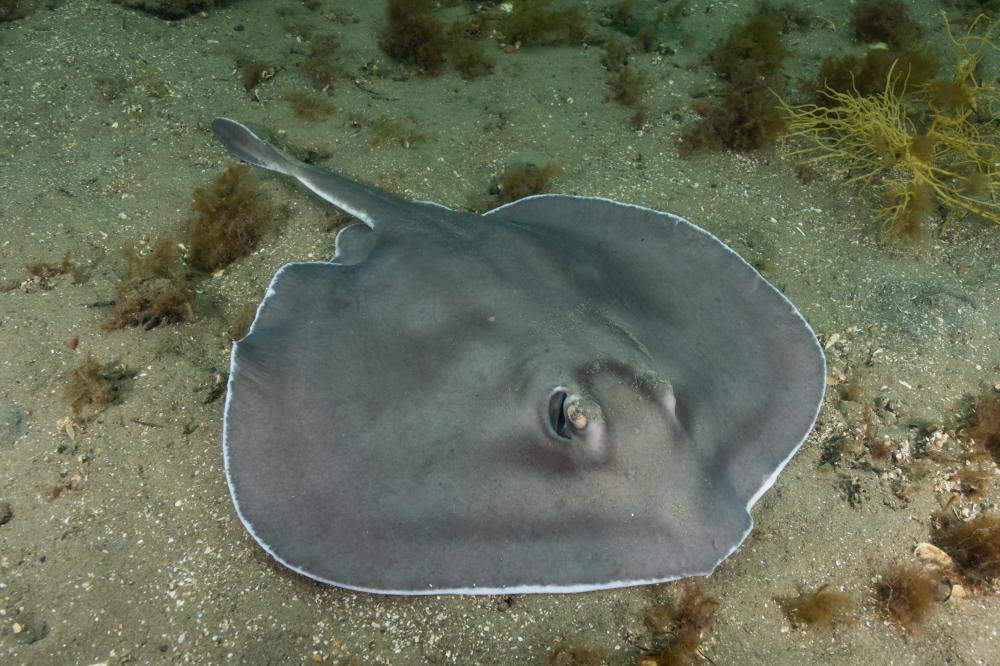Urolophus paucimaculatus
Sparsely spotted stingareeSimilar Species
Same Genus
Distribution
Temperate Australasia
Description
Most easily recognised because of its pattern of white spots on the upper surface; however, these spots become less distinct or are absent in specimens seen in deeper water and towards the north of its range. The species is more aggressive than other southern stingarees and has been known to attack divers. It is sometimes captured by trawlers in large quantities.
Information
Max Size: 57 cm
Sea Temperature Range: 11.3-23.2°C
Depth: 5-150 m
Habitat Generalization Index: N/A
Also referred to as the SGI (Species Generalisation Index), this describes the habitat niche breadth of the species. Species with values less than 15 are found in a relatively narrow range of reef habitat types (specialists), while those over 25 may be found on most hard substrates within their range (generalists). Learn more here.
Conservation and Rarity
IUCN Status: Least Concern
Occurrence: Infrequent (5.4% of sites)
Occurrence describes how often the species is found on surveys within its distribution. It is calculated as the % of reef sites surveyed by RLS divers across all the ecoregions in which the species has been observed
Abundance: Solitary (1 per transect)
Abundance is calculated as the average number of individuals recorded per RLS transect, where present.
Edit by: GJ Edgar. 2008. Australian Marine Life. New Holland, Sydney















